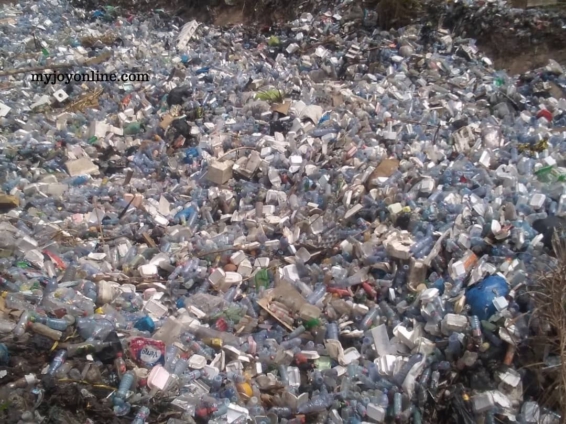The Alliance to End Plastic Waste has announced a partnership with the ASASE Foundation to support women entrepreneurs working to reduce plastic litter in the community.
The initiative called 'Closing the Loop' uses a circular economy model, to enable local communities to benefit from discarded plastic waste by collecting, reprocessing, and reselling it.
Launched by ASASE Foundation in 2018, the 'Closing the Loop' initiative seeks to provide seed money to equip plastic waste reprocessing plants as well as provide technical and business management training for women entrepreneurs to run the recycling plant for profit.
The project has already created eight jobs within the community as well as diverted 35 (metric) tons of plastic from wastes in the first twelve months.
By partnering with the Alliance, the capacity of the processing plant is expected to increase to divert 2,000 (metric) tons of plastic waste per year and create even more jobs.
“A key pillar of ending plastic waste in the environment is the sustainable impact it will bring to the well-being of local communities.
This is why our partnership with ASASE is especially meaningful because 'Closing the Loop' is the right step towards a circular economy model. It directly benefits those living in areas which don’t have access to plastic waste collection and sorting systems.
"This initiative is a simple but scalable action that benefits the environment but supports the inspiring women of Ghana who are building their communities on the path towards ending plastic waste in the environment, ” President and CEO of Alliance to End Plastic Waste, Jacob Duer said.
Adding to this view, Founder and Managing Director of ASASE Foundation, Dana Mosora said “what we value most in our partnership with the Alliance to End Plastic Waste is the access to the expertise in waste management which we can leverage now in our project, effectively multiplying the impact of the funding provided by the Alliance to our project.”
The partnership has also opened the possibility to bring in expertise from an academic partner, the Swiss Federal Institute of Technology.
The newly established recycling plant processes a range of plastic waste from water sachets to shampoo and detergent bottles and large cooking oil containers; converting them into regrinds.
The regrinds are then sold to recyclers to make items such as pavement blocks, sheets for construction, basins and liners, most of which goes back into the community.
Latest Stories
-
ECG collaborates with NADMO to safely restore power after Accra Floods
8 minutes -
3 confirmed dead in Adentan flood, MCE blames construction on waterways
53 minutes -
We are not in crisis – Jinapor fires back
1 hour -
Lawrence Agyekum scores as Cercle Brugge thrash Patro Eisden
1 hour -
John Jinapor rejects ‘fear tactics’ allegations, outlines strategies amidst Ghana’s energy challenges
1 hour -
I’m fixing the energy sector, not complaining – John Jinapor fires back at critics
1 hour -
Diasporans to get insured as Old Mutual and GUBA strike strategic partnership
2 hours -
Ga Traditional Council summons 15 churches for flouting ban on noise-making
2 hours -
Burkina Faso immortalizes Rawlings as son Kimathi rallies Africa for unity
2 hours -
40 Assembly members in Atwima Mponua petition Mahama to appoint Sakina as DCE
2 hours -
Today’s Front pages :Monday, May 19, 2025
3 hours -
Heart of Lions miss chance to go top after draw with Basake Holy Stars
3 hours -
BoG’s Zakari Mumuni defends tough policies behind cedi stability
3 hours -
‘We knew what we were doing’ – BoG fires back after cedi gains 12% against dollar
3 hours -
Bawumia lauds Ghana as Africa’s fastest-growing mobile money market
4 hours

